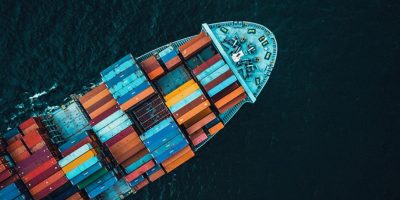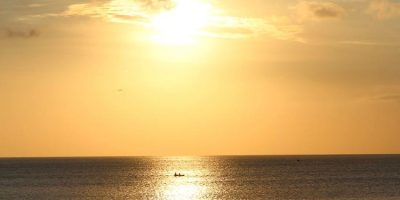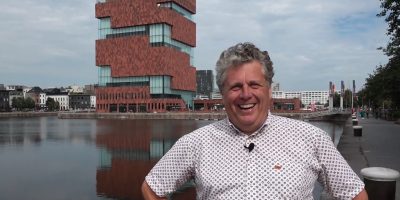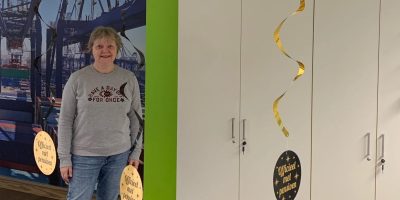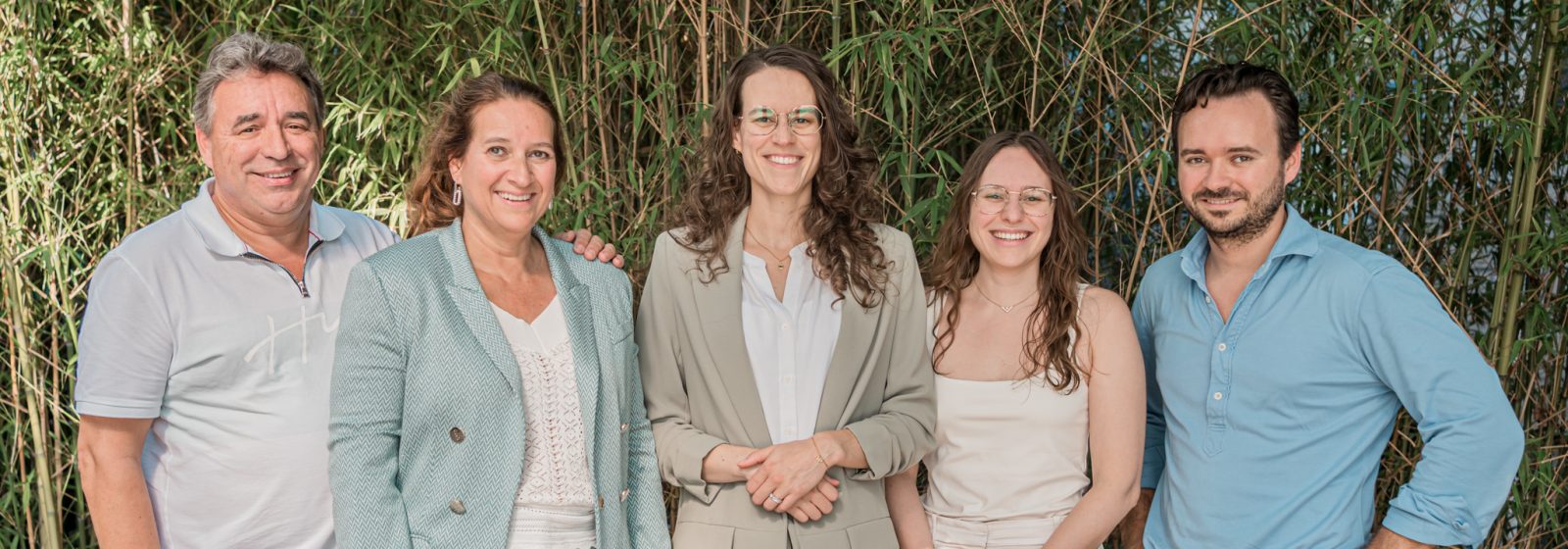
Luc Huysmans, business manager of freight forwarder Levaco and also the driving force behind the Atlas logistics network, is passing the torch to his son and daughters. “My children have had to go through every step and therefore know the business inside and out,” Luc says proudly.
“Where we come in, people just want to do business together; no religion or country or race matters there. The only thing we have ever experienced in that respect is that we had to separate two Americans, one was for Trump and the other for Clinton,” laughs Luc Huysmans. It typifies the no-nonsense Antwerp native who just wants to do business. He helped expand the company Levaco, a classic freight forwarder specialising in sea freight, and was also at the cradle of the Atlas Network. This is a global logistics network. Luc Huysmans is now passing on the torch: the Atlas Network will be continued by daughter Lyanne, son Christopher and daughter Alycia will take charge of Levaco.
Christopher and Alycia Huysmans, meanwhile, are the third generation. “We took over the company in the year 2000 from the original owners,” Luc Huysmans looks back. “Since Covid, my son and daughter have been running it for 95%, now I am definitely passing the torch to my children.”
Founded in 1967 by two partners, Levaco developed as a traditional freight forwarding company focusing on sea freight activities for both imports and exports. Luc Huysmans himself was a director at the forwarding company Navex for a long time, until the opportunity arose to take over Levaco. “The then owner, Erik Van Der Haeghe, didn’t have a successor and that’s how we started talking. Meanwhile, Levaco also took over 100% of Navex’s shares. The name still exists and we do have plans for it,” Huysmans hints.
Family business
“When I started, there were a lot of family businesses in the port, and look now: there are hardly any left. Why we did survive? By working hard,” laughs Luc Huysmans. “And now it’s the next generation’s turn. I think one of our great strengths is that we profile ourselves as a family business. My son wanted to learn everything, and from the age of 18 he went with me to visit customers. That was often an eye-opener for the customers too: they are dealing with a real family business, where the children have had to go through every step and therefore know the business inside and out.”
“I also took my son abroad to visit customers while he was still studying. That’s how he learned to ride a moped in Vietnam, something his mother didn’t allow him to do all those years,” laughs Luc Huysmans. “Back then, travelling was very important for doing business and we were very much oriented towards overseas clients with Levaco.”
After completing her college studies, Alycia also joined Levaco. As he did with Christopher, Luc took Alycia to one of the bigger conferences in the logistics industry to Malaysia. After some training and with a lot of commitment, she is now focusing on leadership along with Christopher. While Alycia has immersed herself in imports and Christopher on exports, they complement each other well. A top team as they say themselves.
Today, many SMEs belong to Levaco’s clientele, especially in West and East Flanders. “Many SMEs there are still family businesses, which feel more addressed by us as a family business,” says Christopher Huysmans. Christopher previously held a more commercial role in the company, but now takes charge of Levaco. “What I am particularly proud of is the good relationship we have been able to build with many of our customers. For example, there are companies that have been Levaco customers for more than 40 years.”
Evolution
Asked about the biggest change he has witnessed, Luc Huysmans refers to the rise of the digital age. “The biggest change we have seen is definitely in the field of IT, with the rise of IT and the internet that have thoroughly changed the way we do business anyway. Twelve years ago, we were still working with cheques…”
Today, greening is the most discussed topic in logistics. Personally, I think it’s a must and that everyone has to get on board, although you do see shipping lagging a bit behind. Every shipping company sweeps in front of its own door, they all say the same thing but don’t want to cooperate with each other. Another hot topic is digitalisation, although I think we have achieved far too little in that area. We don’t manage to get anything up and running in Antwerp, so how can we take the lead globally?” wonders Luc Huysmans.
“The biggest problem today is finding suitable personnel, and personally I consider it a bit of a failure that we are no longer getting young people excited about a job in logistics. Although perhaps it’s a general phenomenon: what does youth still get excited about?”, Luc Huysmans wonders. “German forwarding companies, for example, work with a ‘Praktikum’ (an internship during training, ed.), but in our country we don’t manage to set something like this up, even though it is the only way to show young people what it is all about. The inflow from logistics courses today is minimal, there are many more vacancies than students graduating. As for us, we can certainly be proud of our team, as we have an ideal mix of knowledge and speed. “
Networking
Luc Huysmans is also the driving force behind the ‘Atlas International Network’, an independent association of freight forwarders and related logistics service providers. Its members proactively work together on five continents to build a reliable network, which benefits their services and reduces risks. “The aim of the network is to bring quality companies together,” says Huysmans. “We screen people and request all financial reports.”
“With the Atlas network, we represent 900 companies worldwide with the various networks,” says Luc Huysmans. “Since my daughter Lyanne joined, we have almost quadrupled. We have taken numerous new initiatives. For instance, during Covid we built an expertise network specialising in pharma and breakbulk.”
“We also organise an annual conference,” adds Lyanne, “and this year it is taking place in Bali. Every year it goes on in a different location. The conference is always a four-day programme, where we traditionally start with a cocktail for a first introduction. This is followed by a plenary session, where we invite several speakers. The programme always includes a discovery of the venue, to combine the pleasant with the useful. Afterwards, it is then time to do business again, which then goes much more smoothly oldat all the participants have already got to know each other in a different atmosphere.”
“Our big advantage is that a lot of business owners themselves come, or the toplevel management. As a result, the conferences are always very high quality. It is very intensive, but it absolutely pays off,” Lyanne concludes.

